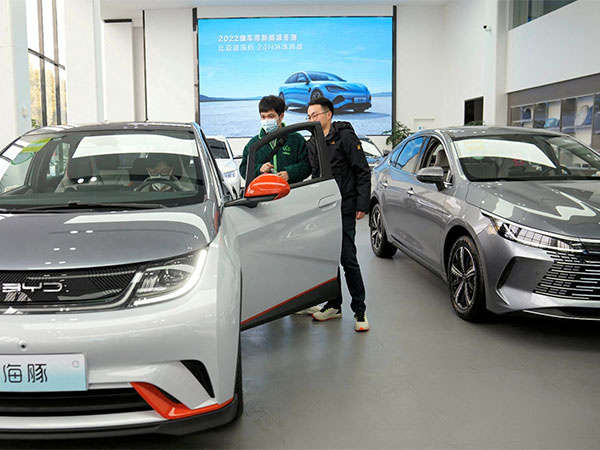The European Commission has approved steep tariffs on electric vehicles (EVs) made in China, despite ongoing negotiations with Beijing. The tariffs will be in place for the next five years, with Brussels aiming to secure a deal on minimum prices to replace them. The solution proposed by Germany is complex and challenging to implement. The Commission remains committed to finding a solution with Beijing through enforcement of customs duties and rules compatible with the World Trade Organization.
The tariffs vary according to brands, with Tesla facing a 7.8% tariff, while other Chinese EV producers face higher rates. The Commission argues that the additional tariffs are necessary to counter the effects of subsidies provided to Chinese EV producers by Beijing. This financial aid has allowed Chinese producers to sell their products at lower prices in Europe compared to their European competitors, leading to a significant increase in their market share.
The rapid growth of Chinese EV sales in Europe poses a threat to EU carmakers, who could face unsustainable losses and job cuts without strict measures. The EU official highlighted the danger of the car industry not transitioning to electric vehicles and being wiped out. China has denounced the Commission’s probe as a protectionist act, denying the existence of subsidies and threatening retaliatory measures against the EU’s dairy, brandy, and pork industries.
While the US and Canada have imposed 100% tariffs on Chinese EVs, Europe remains a lucrative market for Beijing’s high-end products. The approval of tariffs by the European Commission comes after member states failed to reach a majority in support or against the measures. The Commission used its trade powers to break the impasse and push through the duties, emphasizing fair market practices and protection of the European industrial base.
The ongoing negotiations with China aim to find a solution that is mutually beneficial for both parties and complies with international trade rules. The European Commission’s decision to impose tariffs on Chinese EVs reflects its commitment to addressing unfair trade practices and supporting the growth of the European electric vehicle industry. With the tariffs now in effect, the next step is to continue working towards a resolution that promotes fair competition and sustainability in the global EV market.










